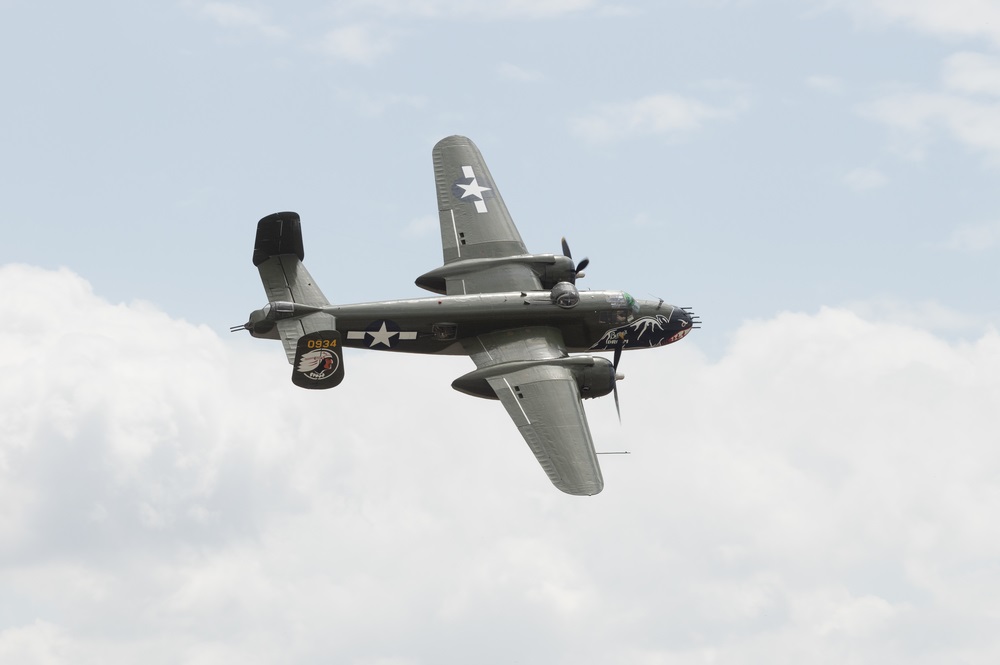
Squelching Fear to Make the Tough Calls
When conventional approaches don’t cut the mustard, it’s time to give the unconventional a try. That’s what successful leaders tend to do, and it’s a common trait among heroes, too. Both groups are so often the ones to make the tough calls, take a calculated risk and try an innovative solution. And when it works, the payoff can be huge.
April 18, 2017 marked the 75th anniversary of the dramatic bombing of Japan that followed the attack on Pearl Harbor. On that day in 1942, at 8:20 in the morning, 16 B-25 bombers under the command of Jimmy Doolittle took off from the USS Hornet 750 miles from Japan. In 1942, most experts found the notion of America — a county ill-prepared for any sort of warfare — making a direct assault on the Japanese superpower almost inconceivable. FDR disagreed.
Two weeks after Japan’s December 7th attack on Pearl Harbor, President Roosevelt asked the Chiefs of the Army, Navy and Army Air Force to plan a retaliatory strike to boost American morale. Since the lion’s share of the U.S. Pacific Fleet’s battleships lay on the bottom of Pearl Harbor and American aircraft of that era could not reach Japan from the closest American base, the service Chiefs wondered how they could respond to the President’s request. Doolittle, a military test pilot and aeronautical engineer, figured out the answer.
When the group of volunteers first assembled, Doolittle informed them the mission would be highly secret, dangerous, important and interesting — and some of them probably wouldn’t return. In spite of his candor, Doolittle didn’t lose a man, at least not then. On April 18th, 80 men, most of them scarcely out of their teens — but Doolittle in the middle of middle age — took off from a Navy carrier in the Pacific.
One of the volunteers, Richard Cole, served as the co-pilot on Jimmy Doolittle’s plane. In 2010, I had the rare and exciting opportunity to interview Lt. Colonel Cole about the days leading up to the raid, his reaction to it and Doolittle’s leadership.
Cole mentioned Doolittle had earned the title “Master of the calculated risk” far before FDR and others conceived of the raid because he consistently pushed the edge of the envelope. When I learn clients fear failure, I think of Doolittle and his Raiders. They had much to fear, yet they didn’t let dread stop them. When I asked Cole to describe the fear they all felt as they stood on the deck of the Hornet, realizing they wouldn’t have enough fuel to return, he said he didn’t feel scared and didn’t see signs that others did. Rather, they all focused on the objectives and the “job we had to do.”
Even before takeoff, the crews realized they would probably not reach their intended bases in China, leaving them the option either to bail out over eastern China or to crash land along the Chinese coast. Fifteen crews were forced to ditch along the coast or to bail out over eastern China. Most of the Raiders found their way to safety, but the Japanese Army captured eight of them and executed three as war criminals.
Doolittle thought the raid a complete failure, and he thought he would be court-martialed upon his return. He erred on all counts. The action bolstered U.S. morale and slowed the Japanese offensive. Further, the raid led directly to what many historians now believe defined the turning point in the war against Japan. But it did something else: It demonstrated the value of embracing ambiguity and approaching threats with new thinking when conventional approaches won’t work.
The Doolittle Raid serves as a lesson for leaders about decision-making, innovative thinking, risk-taking and overcoming obstacles to success. It also shows that successful leaders must be willing to accept innovative solutions to unprecedented problems. Only then can they create a culture that attracts people who willing to make tough calls.
Col. Doolittle wasn’t court-martialed. Instead, his actions distinguished him as one of the first heroes of the war, won him the Medal of Honor and positioned him to serve as a stellar example of leadership — a person who never thought of staying in or creating a comfort zone. On this anniversary, Col. Cole, at the age of 101, is the only living Doolittle Raider hero. We thank him and remember his fellow heroes.
Published by Conselium Executive Search, the global leader in compliance search.

